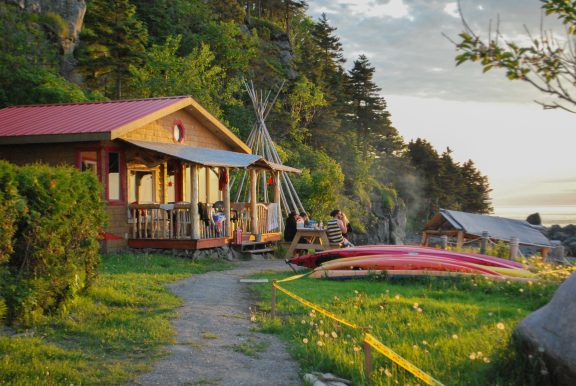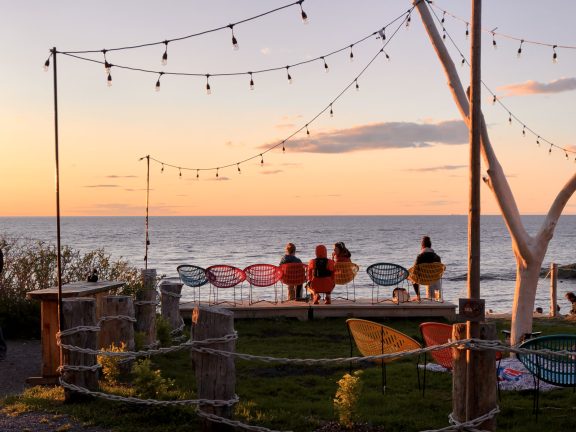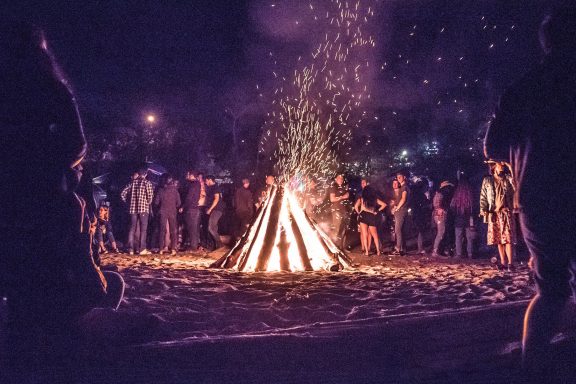10% off your next stay!
Join the Saintlo adventure and enjoy 10% off your next stay in Montreal and Ottawa.
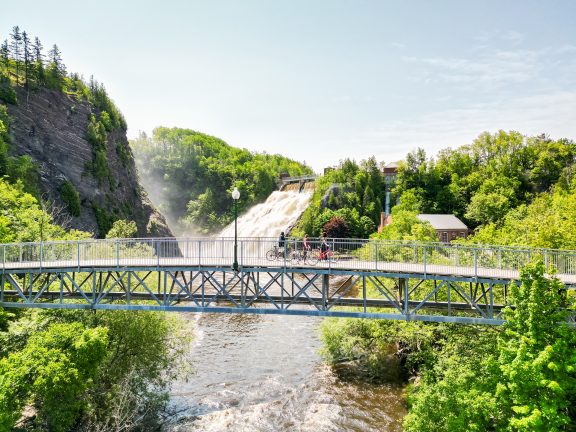
In this article:
Look, I’m not saying that cycling Gaspésie will change your life, but I’m not NOT saying it either.
There is a reason why cyclists from across the country and worldwide head to the confluence of the Saint Lawrence River and the Atlantic Ocean during the warm summer months.
This is a place where challenging coastal rides come serving with a side of culture, flavor, and enough Instagram-worthy views to make anyone jealous.
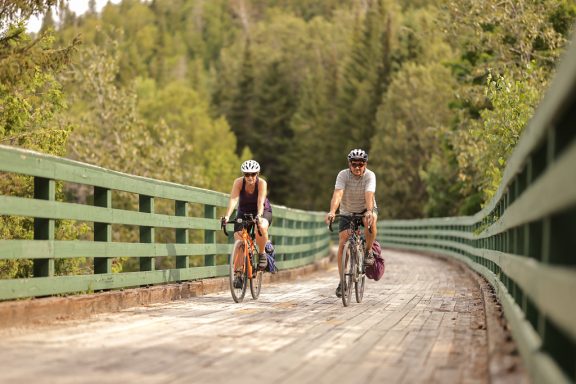
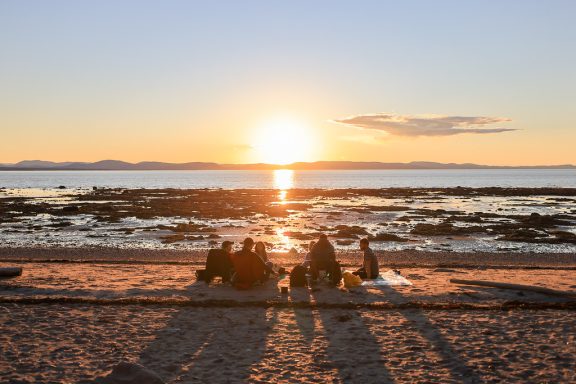
A hefty portion of the Gaspe Peninsula is a part of Route Verte, making almost a full loop along Route 132 (a short, steep section near Grande Vallee not included but not impossible). But for those who scoff at pavement and prefer wilder adventures, there’s the recently developed gravel route through Gaspésie’s interior, known as La Transgaspésie. Think of it as the Route 132 cooler, extreme cousin.
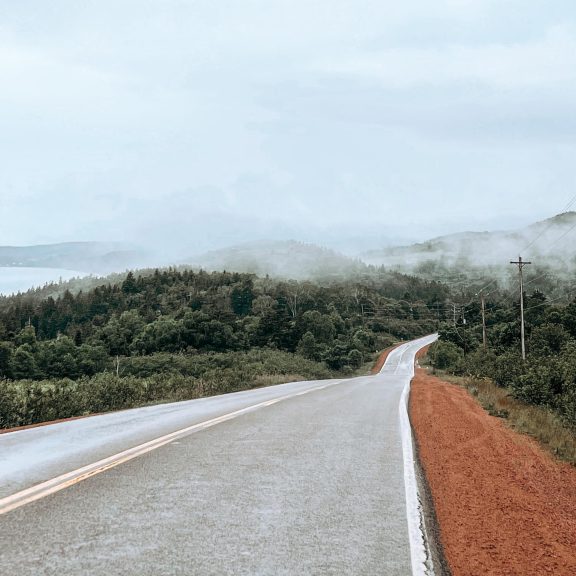
Difficulty: Some steep accents and 100-kilometer days
Length: 900 km
Trail type: Mostly paved
When bikepackers travel to Gaspésie, they’re often lured by Route 132’s siren song—a mostly coastal route with photo-worthy views that’ll have your Instagram followers weeping with envy.
This two-week one-way journey along paved highways offers plentiful side quests, snack options (crucial!), and the option for actual beds.
Most wise souls start at Mont Joli and end at Forillon to avoid headwinds and to more strategically tackle those “character-building” Chic Choc Mountain climbs. Your knees will send a thank-you card later.
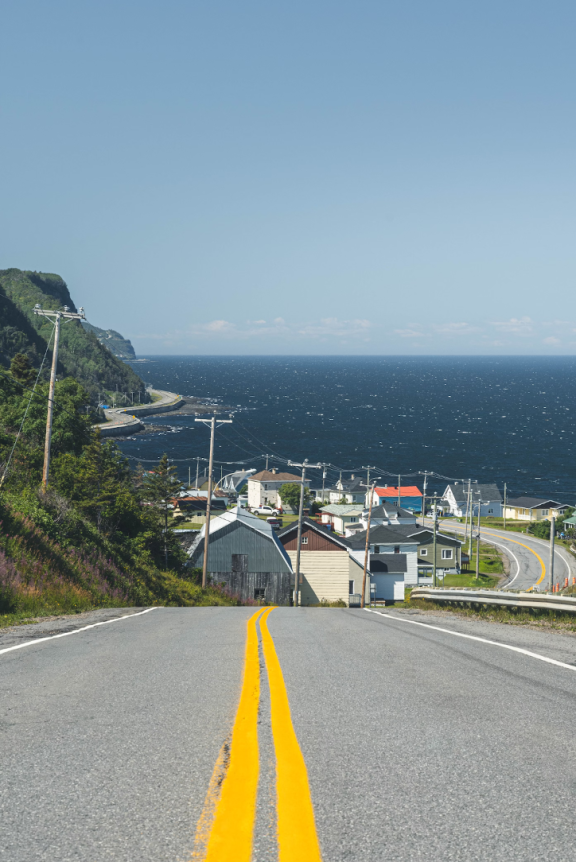
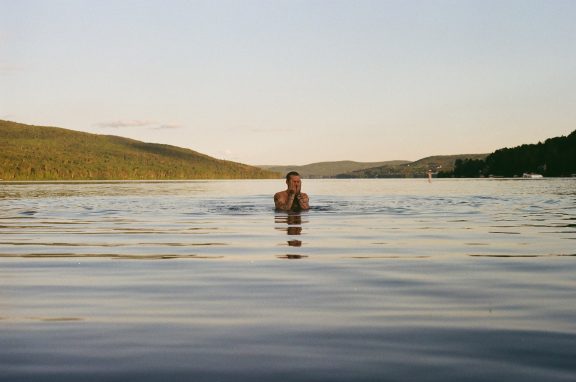
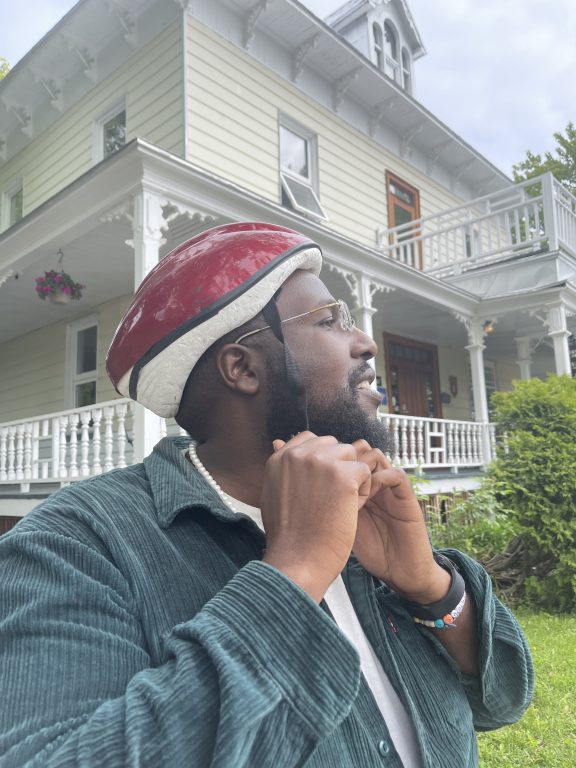
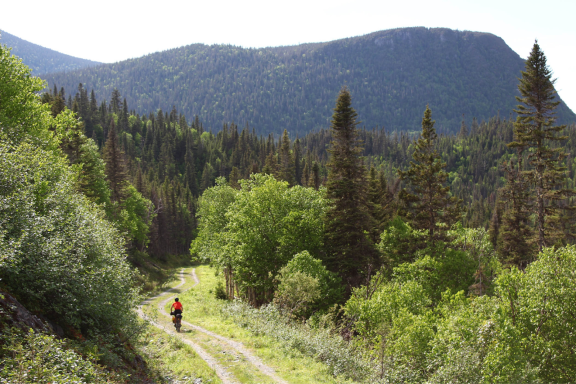
Difficulty: Plenty of climbs, steep double-track descents, and long days
Length: 450 km
Trail type: Mostly gravel roads and ATV trails
For the hardcore gravel bikepackers seeking trails less traveled, La Transgaspésie, a route developed by rider Jérémie Bourdages-Duclot, offers a challenging 450-kilometer tour through the Chic Choc Mountains starting just outside Amqui and ending at the edge of the world: Cape Gaspé.
This route takes a week, grinding through the alpine and two national parks (Gaspesie National Park and Forillon National Park) to finish with you staring dramatically over the cliffs at Land’s End.
Pack carefully! You’ll be roughing it most nights, enjoying starlit camping and wildlife encounters in crowd-free Gaspésie. Just don’t forget the bear spray.
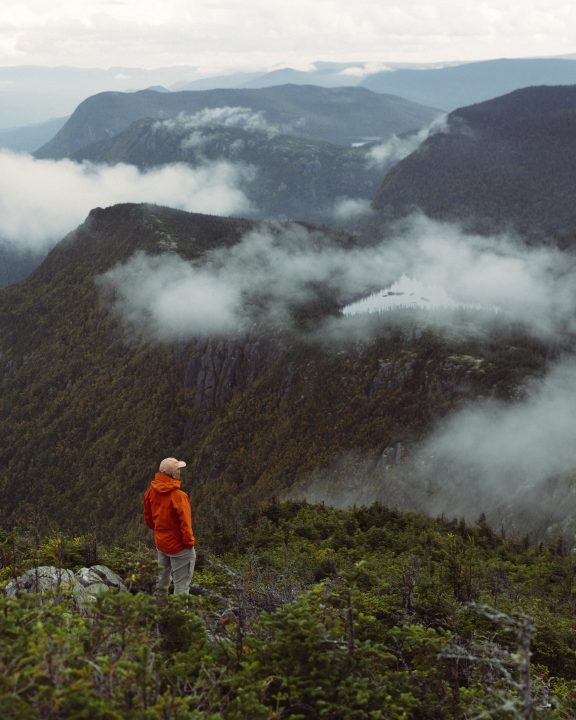
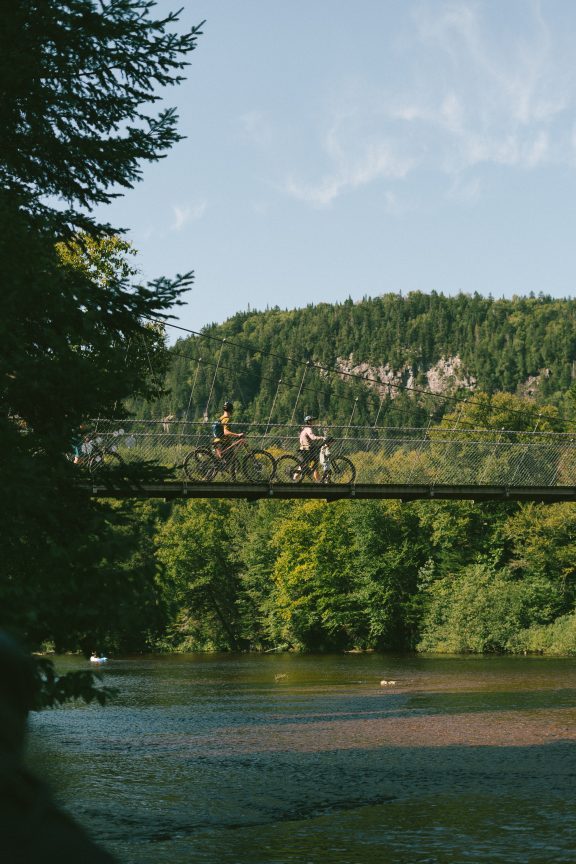
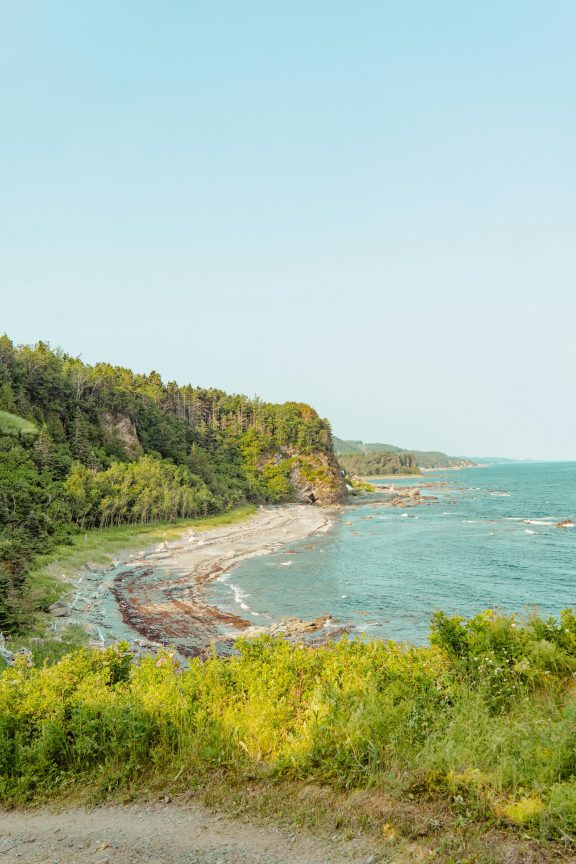
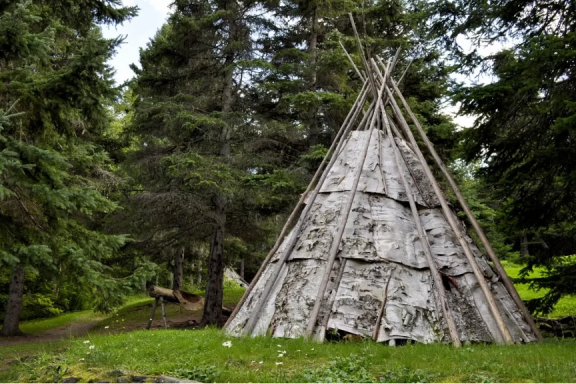
Both bikepacking routes travel through traditional Mi’kma’ki & Wabanaki land. As you pedal across Gaspésie you’ll naturally be travelling the same route as indigenous peoples have travelled for millennia
So, why not take this experience one step further with a few hours at the Micmac Interpretation Site.
Check out the reconstructed traditional village, guided tours (book in advance), and locally made goodies by local Indigenous artisans. Open seasonally.
2. Make it a Lighthouse Photo Tour
All along Route 132 as it hugs the edge of the Saint Lawrence River, you’ll pass
by dozens of historic (often still functional) lighthouses.
Plan to stop along your route at each of these maritime sentinels for a lighthouse-themed photo op. The dramatic coastal scenery is the perfect backdrop for your Gaspésie cycling tour.
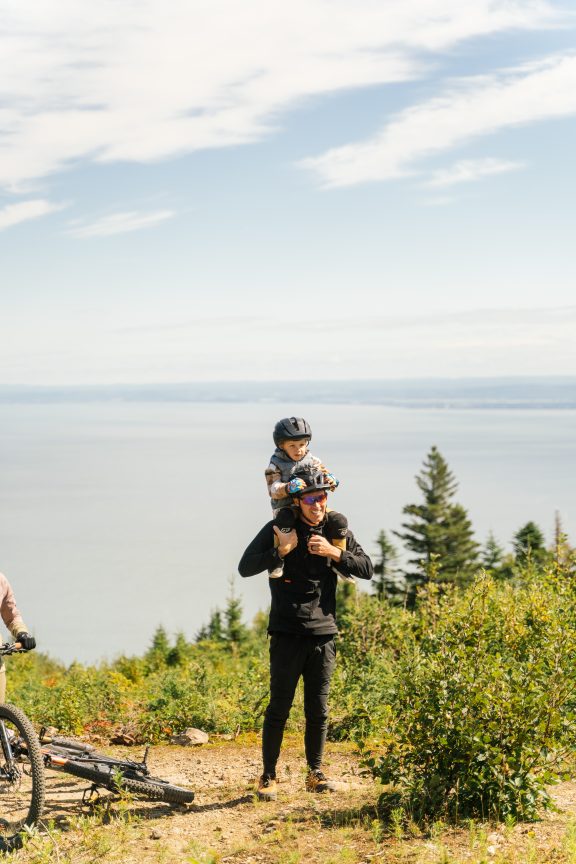
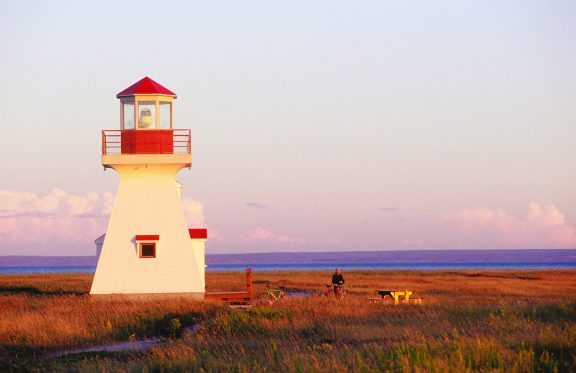
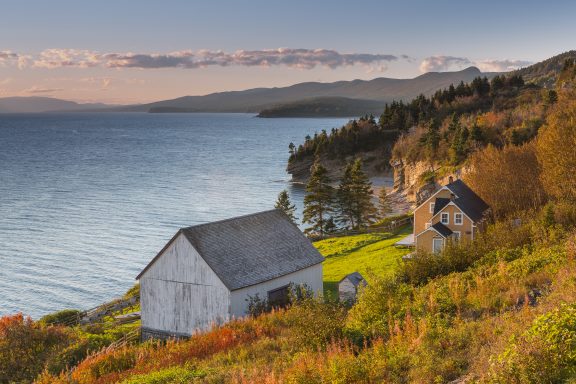
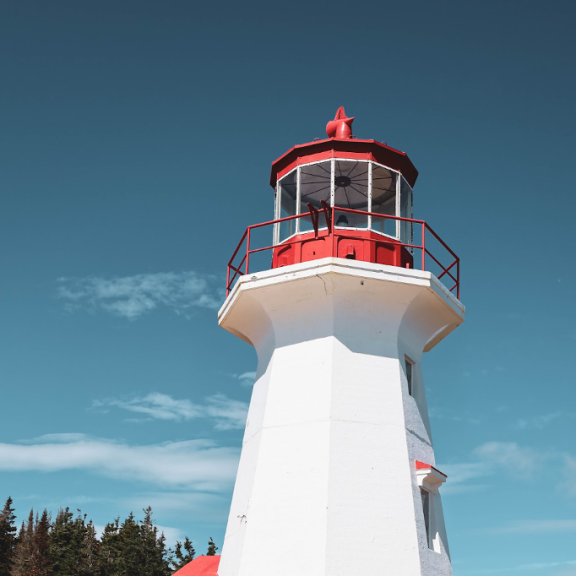
2. Endless Casse-Croûtes
Fuel up across the Gaspésie at the countless Casse-Croûtes (aka food shacks) that line the cycling routes. These small, side-of-the-road fry shacks serve the best poutine in the world, deep-fried seafood platters, and lobster rolls every summer.
If there is ever an excuse to eat your weight in cheese curds and gravy, it’s after spending ten hours pedaling 100 kilometers, uphill, against a headwind.
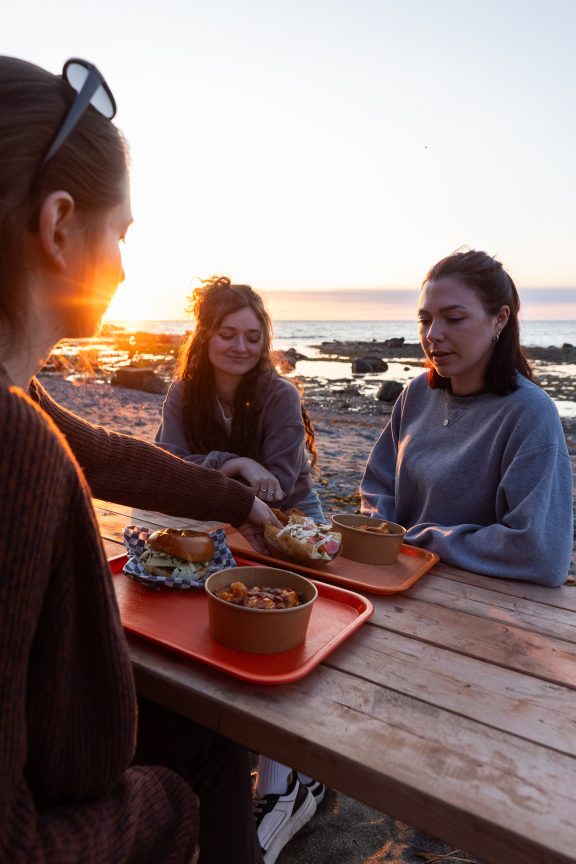
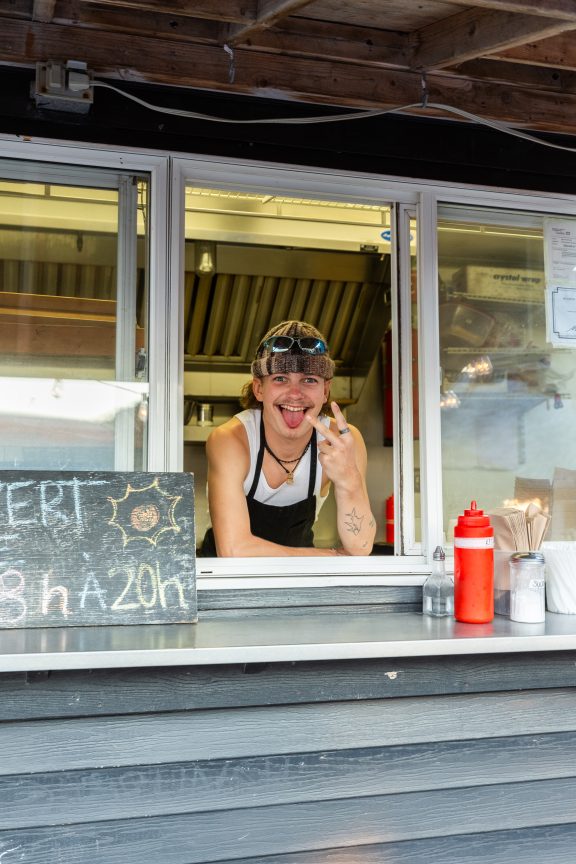
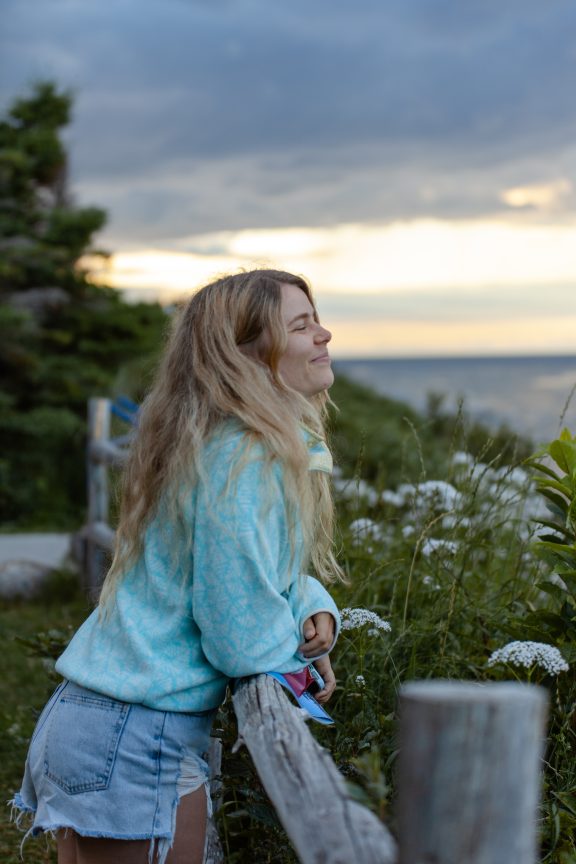
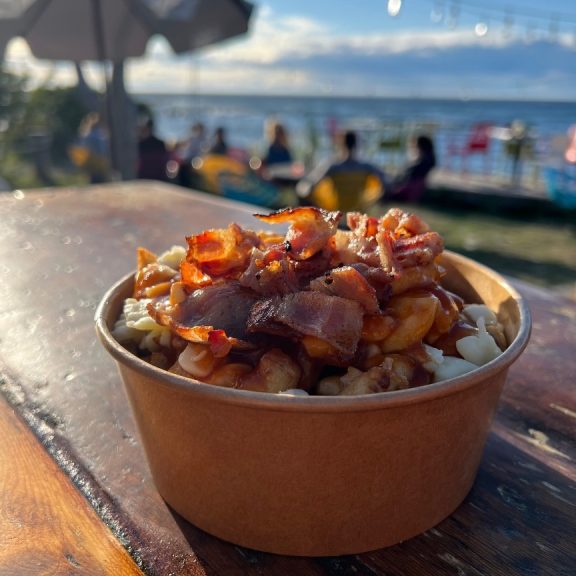
The cycling route you choose to travel will ultimately influence your accommodation!
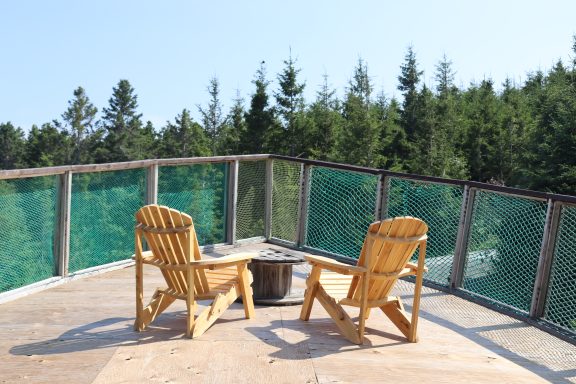
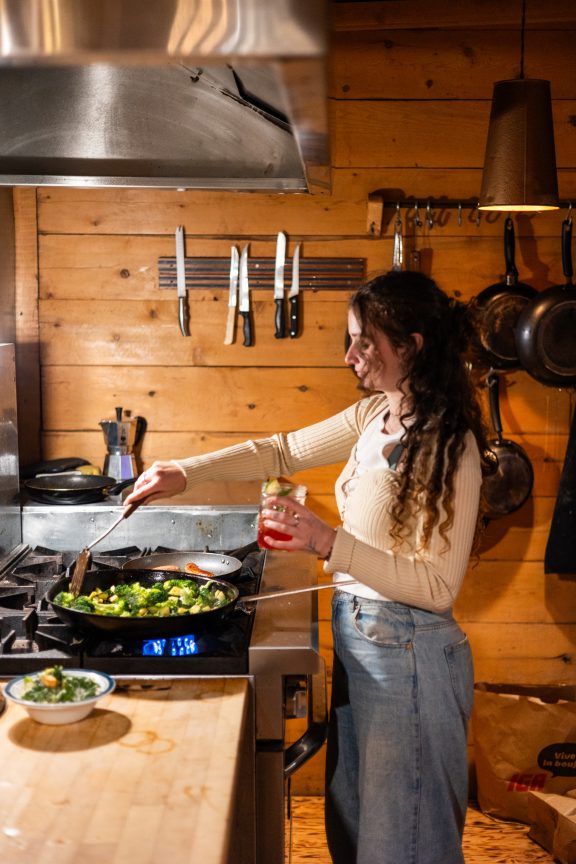
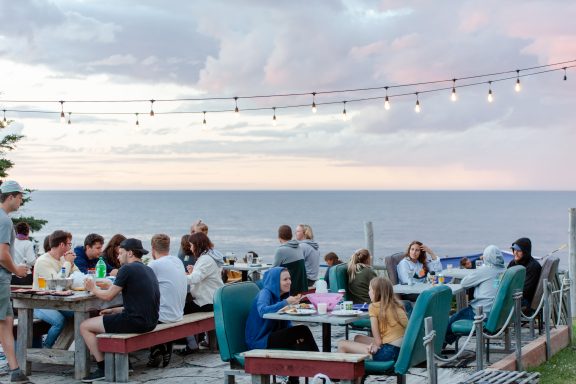
La Transgaspesie, traveling along mostly remote trails and logging roads, relies heavily on wild camping, interspersed with more serviced camping within national parks.
But there is an epic final seaside celebration (not to mention a steamy hot shower) at the Auberge Griffon Aventure, part of the Saintlo Collective.
On the flip side, bikepackers cycling along the official Route Verte 132 highway have more options.
From Monte Joli to Gaspé, dozens of full-service campgrounds make route planning easy.
Or, you could just wing it and see where the day takes you (spoiler alert: probably to a full campground with no vacancy).
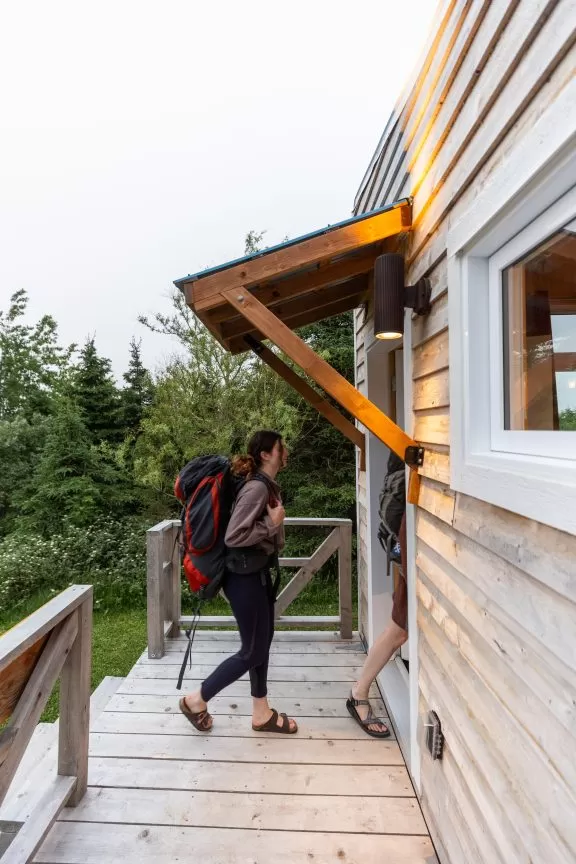
And don’t miss the Auberge Festive Sea Shack, roughly midway through the tour. This friendly accommodation and Tiki bar makes for a great night off from the road. Featuring campsites, private rooms, and bike storage, the Sea Shack is a great way to meet fellow travelers.
